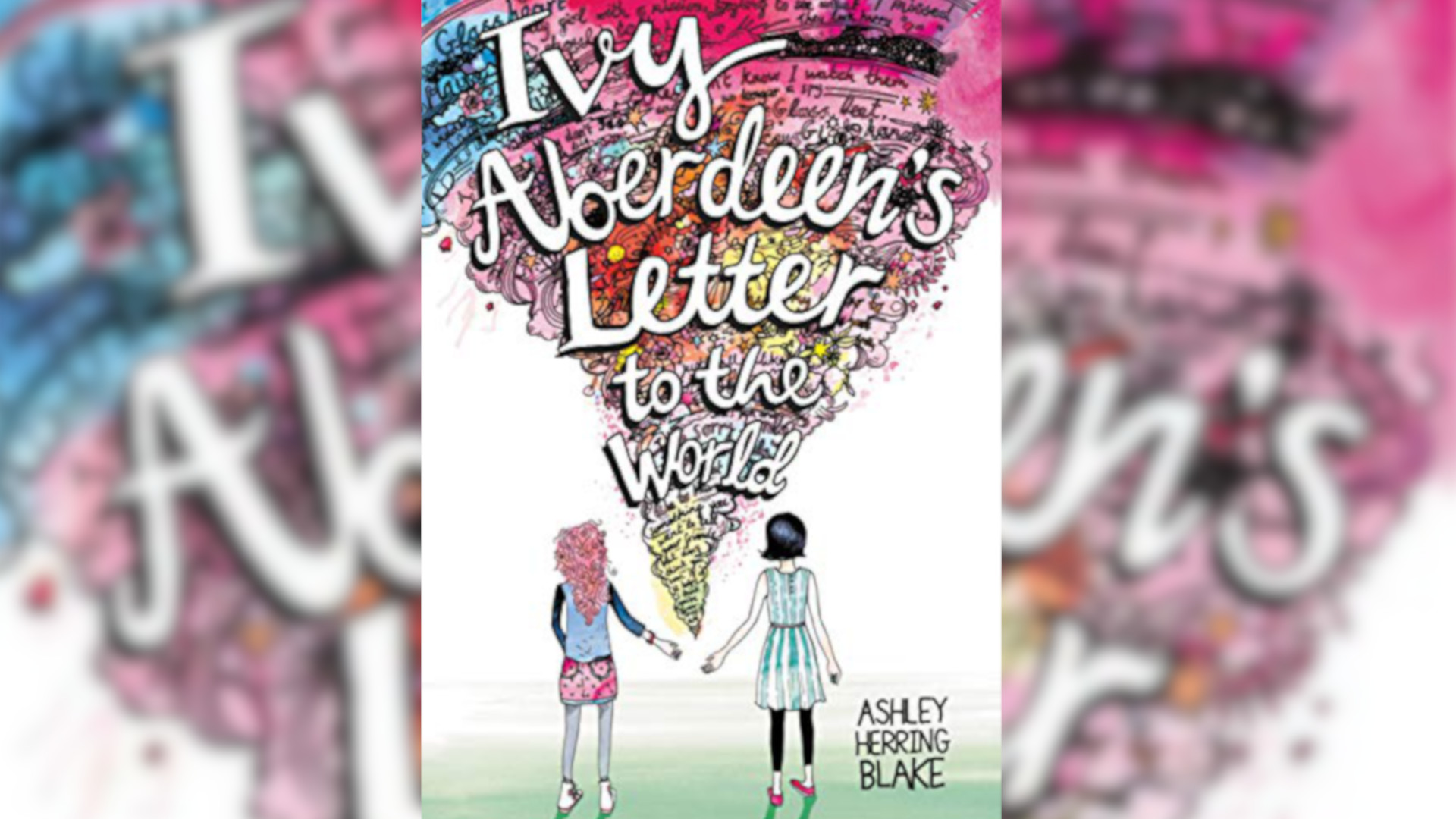Ivy Aberdeen’s Letter to the World by Ashley Herring Blake is probably the only LGBTQ book I’ve come across that is geared to middle-grade readers. It’s a gentle, sensitive portrayal of a young girl handling her first crush, and a same-sex crush at that, all while her family deals with upheaval.
Twelve-year-old Ivy loves to draw, and has a secret notebook of drawings she has never shown anyone – depicting two girls holding hands. Ivy is twelve and just starting to figure herself out when the unthinkable happens: a tornado hits their town, and Ivy’s whole house is destroyed. Her family is safe, though they’ve lost all their posessions. Except one – Ivy saves her secret notebook, but in the ensuing chaos at the nearest shelter, it’s lost.
Then Ivy’s drawings start showing up inside her locker at school, one by one. Who knows Ivy’s secret? Ivy begins to suspect – then hope – that it might be a classmate, on whom Ivy is starting to develop what might be called a crush.
Ivy luckily finds support, including from Robin, the owner of the B&B where her family makes their temporary home until their house is rebuilt. Robin talks with Ivy about her long distance engagement with her girlfriend Jessa, giving Ivy some sense of who she might be becoming and showing her a model for how to build a relationship that’s different from the heterosexual ones she’s known.
At the same time, Ivy is very reluctant to talk with her family about her feelings – partly because her parents are already at maximum stress level figuring out their living situation, dealing with insurance matters, and raising two infant twin sons. But also, Ivy overheard her sister Layla’s negative reaction when her best friend Gigi came out to her, and fears losing the older sister she depends on.
I felt like this book very gently and smartly addressed issues of figuring out one’s sexuality at a middle grade level. One scene in particular stood out to me, in which Ivy finally works up the courage to ask Robin about when she herself started to identify as gay – essentially, when she knew. Robin’s response is perfectly age-appropriate:
“If a person was questioning all this stuff, that person doesn’t have to know all the answers. They don’t have to be sure about anything. They don’t have to label themselves as anything but a human being if they don’t want to.”
To me, this is a lovely, frank yet kind way of soothing any middle-schooler possibly struggling to understand their own feelings and forge their identity during an emotionally fraught time. I’d recommend this book to any parent of a middle-school child.
